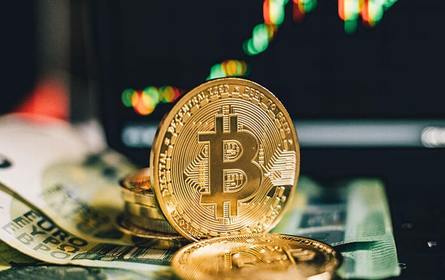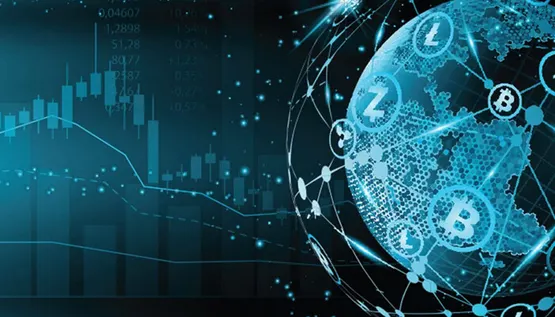DeFi synthetic assets are blockchain-based financial instruments that replicate the value of real-world assets using smart contracts and oracles. They are designed to mirror the performance of traditional assets while residing within the decentralized ecosystem. For instance, a synthetic asset can represent the price of Apple stocks or the price of gold, allowing DeFi users to gain exposure to these assets without ever owning them physically.

DeFi synthetic assets enable anyone with an internet connection to gain exposure to a diverse range of assets without the need for intermediaries, such as brokers or custodians. This opens up investment opportunities to individuals who may not have access to traditional financial services.
Synthetic assets allow for fractional ownership of high-value assets. Users can invest in a portion of an asset, making it affordable for a broader audience to participate in investment opportunities that were once reserved for high-net-worth individuals.
DeFi synthetic assets break down geographical barriers, allowing users from around the world to invest in assets listed on various global markets. This creates a more interconnected and accessible financial ecosystem.
Synthetic assets can enhance liquidity in markets that would otherwise be illiquid or difficult to access. This increased liquidity benefits traders and investors by reducing slippage and improving price stability.
Investors can diversify their portfolios by gaining exposure to a wide range of assets, including stocks, commodities, indices, cryptocurrencies, and more. Diversification helps spread risk and reduces the impact of market volatility on overall portfolio performance.
Synthetic assets enable users to hedge their positions against market fluctuations. By using synthetic derivatives, investors can protect their portfolios from potential losses, reducing financial risk.
DeFi operates on blockchain networks, which are active 24/7. This allows users to trade synthetic assets at any time, providing flexibility and eliminating the constraints of traditional market hours.
DeFi synthetic assets are built on public blockchains, ensuring transparency and immutability of transactions. Anyone can verify the asset's value, ensuring trust in the system.
Traditional financial systems often involve intermediaries, introducing counterparty risk. In DeFi synthetic assets, smart contracts execute transactions automatically, eliminating the need for intermediaries and reducing counterparty risk.
DeFi synthetic assets are programmable, allowing developers to create sophisticated financial products and investment strategies. This fosters continuous innovation in the DeFi space, leading to more efficient and tailored solutions for users.
DeFi synthetic assets can bridge the gap between the unbanked or underbanked populations and the global financial system. By providing access to various financial instruments, more individuals can participate in the global economy.
DeFi operates in a decentralized manner, outside the traditional financial regulatory framework. While this presents some challenges, it also allows for faster innovation and experimentation without immediate regulatory hindrances.
DeFi synthetic assets often have lower transaction fees compared to traditional financial systems due to the elimination of intermediaries and the use of blockchain technology.
While DeFi operates on public blockchains, users have a degree of privacy in their transactions. Additionally, the decentralized nature of DeFi platforms enhances security by reducing the risk of single points of failure.
While the concept of synthetic assets in DeFi holds tremendous potential, it also faces several significant challenges:
Synthetic assets rely on oracles to fetch real-world asset prices. Ensuring the reliability and security of these price feeds is crucial to avoid manipulation or inaccuracies.
Many synthetic asset protocols require overcollateralization to minimize the risk of defaults. This ties up a significant amount of capital, limiting the potential for further innovation.
The nascent nature of DeFi synthetic assets creates regulatory challenges, as policymakers grapple with how to classify and regulate these digital assets.
DeFi platforms face scalability issues due to the congestion on popular blockchain networks, leading to higher transaction fees and slower processing times.
Despite the challenges, developers and researchers in the DeFi space are actively working on solutions to overcome these obstacles:
To enhance oracle reliability, decentralized oracle networks are being developed. These networks aggregate data from multiple sources, reducing the potential for manipulation and providing more accurate price feeds.
To address overcollateralization, novel collateralization models are being explored. Some protocols are experimenting with algorithms that allow users to lock up less collateral while maintaining the stability and security of the system.
The DeFi community is engaging with regulators and policymakers to establish clear and favorable regulatory frameworks for synthetic assets. By promoting transparency and compliance, DeFi can pave the way for mainstream adoption.
To tackle scalability challenges, many DeFi platforms are adopting Layer 2 scaling solutions. These off-chain or side-chain solutions aim to reduce network congestion and lower transaction costs while maintaining the security of the underlying blockchain.

The future of DeFi synthetic assets looks promising, with ongoing advancements in technology, regulatory acceptance, and growing demand for decentralized finance solutions. As developers continue to refine existing solutions and tackle challenges, we can expect greater adoption and integration of synthetic assets within DeFi protocols.

DeFi crypto synthetic assets are reshaping the financial landscape, unlocking opportunities for global investors and revolutionizing traditional finance. While challenges remain, the ongoing development of innovative solutions is driving the progress of DeFi synthetic assets. As the industry matures and gains regulatory clarity, we can anticipate the widespread adoption of synthetic assets, fostering a more inclusive and accessible financial ecosystem for all.
